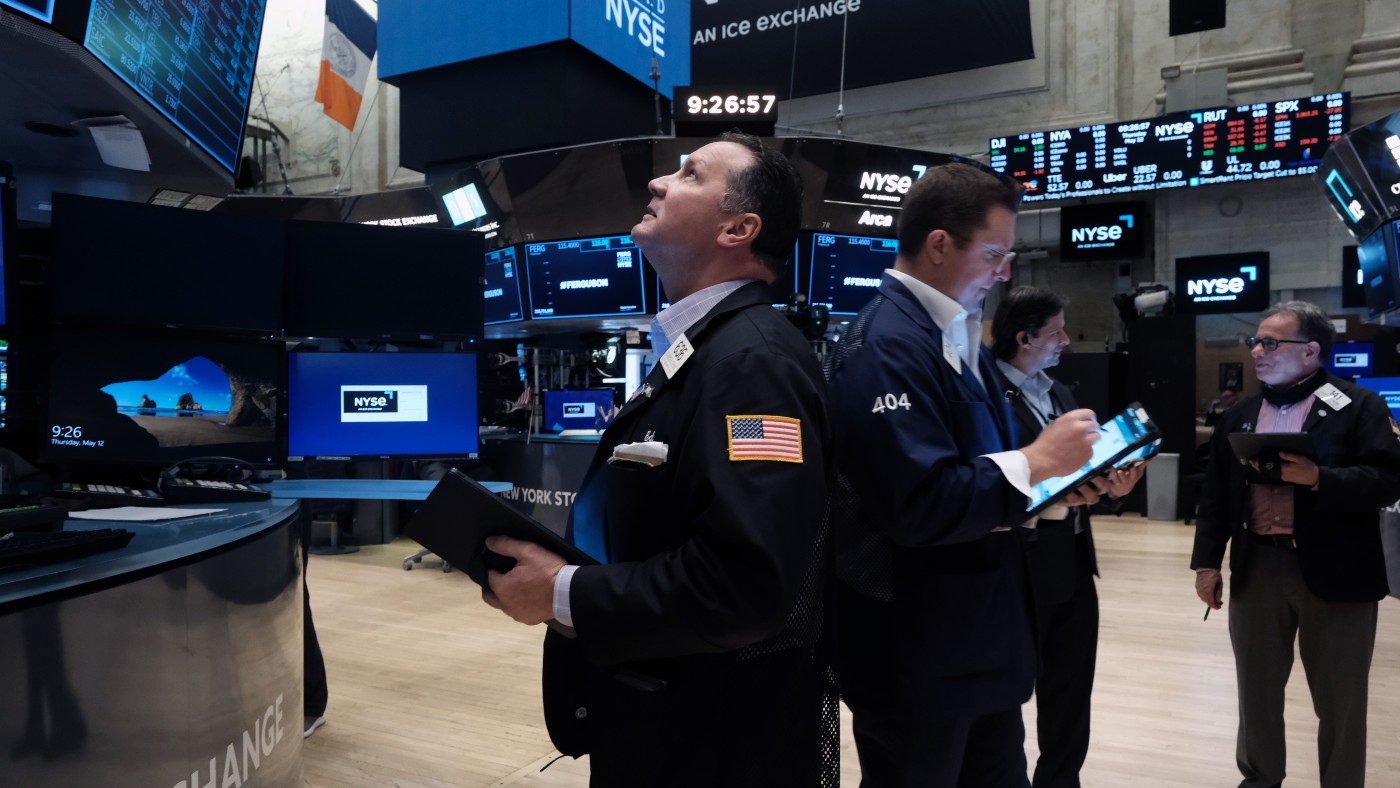Enter the bear: how long will the carnage last?
Investors are grappling with a nasty bear market

A free daily email with the biggest news stories of the day – and the best features from TheWeek.com
You are now subscribed
Your newsletter sign-up was successful
Investors initially acted with relief when the US Fed raised its main interest rate by 0.5 percentage points last week, even though it was “the first rise of that magnitude in more than two decades”, said the FT. The thinking was: it could have been worse. Fed chairman Jay Powell appeared to rule out an even larger rise of 0.75% for now. But it wasn’t long before “market bullishness” again gave way to nerves about how far borrowing costs would have to rise to tackle runaway inflation. The familiar “whipsaw” pattern reasserted itself: “strong rallies on some days, but even sharper sell-offs on others, as puzzled investors tried to position themselves for the end of easy-money policies”.
Wall Street has now “endured its worst run of weekly losses in more than a decade – six in a row”, said The Trader in Investors Chronicle. And, as yet, this bear market looks very far from turning. The rout is increasingly global, said Russell Hotten in The Times. Indices across the world “sank deep into the red” earlier this week as worries about China’s falling growth, and the economic fallout of the Ukraine war, combined with concerns over whether central banks can tame inflation “without tipping the world’s largest economies into recession”. Even “diversified” portfolios are unsafe in the current environment, said The Economist. “In America, investing 60% in stocks and 40% in bonds produced an annual average return of 11% from 2008 to 2021.” That strategy has lost 10% this year. “Whereas 2021 marked the apex of the ‘everything rally’, in which most asset prices rose, 2022 could mark the start of an ‘everything slump’.”
The big question is how much lower the US S&P 500 might fall, said Will Daniel in Fortune. The good news, according to Bank of America strategist Michael Hartnett, is that “bear markets are quicker than bull markets”. Based on data gleaned from the last 19 of them, he reckons the S&P 500 “still has another roughly 25% downturn ahead of it from current levels”. The bottom, he suggests, might be hit in October – though “a floor does not equal a new bull market for tech stocks”, which are likely to “remain in a bear market for the next two years”. A lot of speculation has already been flushed out of the market, which is “healthy”, said John Authers on Bloomberg. But ultimately this is about economics. “If inflation comes under control relatively quickly and the world escapes without a dose of stagflation, then it will be that much easier to justify paying up for stocks”. But if the economy “moves to the worse end of expectations, with negative growth and higher inflation”, expect the falls to continue. It’s not the cheeriest of messages.
The Week
Escape your echo chamber. Get the facts behind the news, plus analysis from multiple perspectives.

Sign up for The Week's Free Newsletters
From our morning news briefing to a weekly Good News Newsletter, get the best of The Week delivered directly to your inbox.
From our morning news briefing to a weekly Good News Newsletter, get the best of The Week delivered directly to your inbox.
A free daily email with the biggest news stories of the day – and the best features from TheWeek.com
-
 Minnesota's legal system buckles under Trump's ICE surge
Minnesota's legal system buckles under Trump's ICE surgeIN THE SPOTLIGHT Mass arrests and chaotic administration have pushed Twin Cities courts to the brink as lawyers and judges alike struggle to keep pace with ICE’s activity
-
 Big-time money squabbles: the conflict over California’s proposed billionaire tax
Big-time money squabbles: the conflict over California’s proposed billionaire taxTalking Points Californians worth more than $1.1 billion would pay a one-time 5% tax
-
 ‘The West needs people’
‘The West needs people’Instant Opinion Opinion, comment and editorials of the day
-
 TikTok: New owners, same risks
TikTok: New owners, same risksFeature What are Larry Ellison’s plans for TikTok US?
-
 Will SpaceX, OpenAI and Anthropic make 2026 the year of mega tech listings?
Will SpaceX, OpenAI and Anthropic make 2026 the year of mega tech listings?In Depth SpaceX float may come as soon as this year, and would be the largest IPO in history
-
 Leadership: A conspicuous silence from CEOs
Leadership: A conspicuous silence from CEOsFeature CEOs were more vocal during Trump’s first term
-
 Ryanair/SpaceX: could Musk really buy the airline?
Ryanair/SpaceX: could Musk really buy the airline?Talking Point Irish budget carrier has become embroiled in unlikely feud with the world’s wealthiest man
-
 Powell: The Fed’s last hope?
Powell: The Fed’s last hope?Feature Federal Reserve Chairman Jerome Powell fights back against President Trump's claims
-
 Did markets’ ‘Sell America’ trade force Trump to TACO on Greenland?
Did markets’ ‘Sell America’ trade force Trump to TACO on Greenland?Today’s Big Question Investors navigate a suddenly uncertain global economy
-
 Taxes: It’s California vs. the billionaires
Taxes: It’s California vs. the billionairesFeature Larry Page and Peter Thiel may take their wealth elsewhere
-
 Buffett: The end of a golden era for Berkshire Hathaway
Buffett: The end of a golden era for Berkshire HathawayFeature After 60 years, the Oracle of Omaha retires